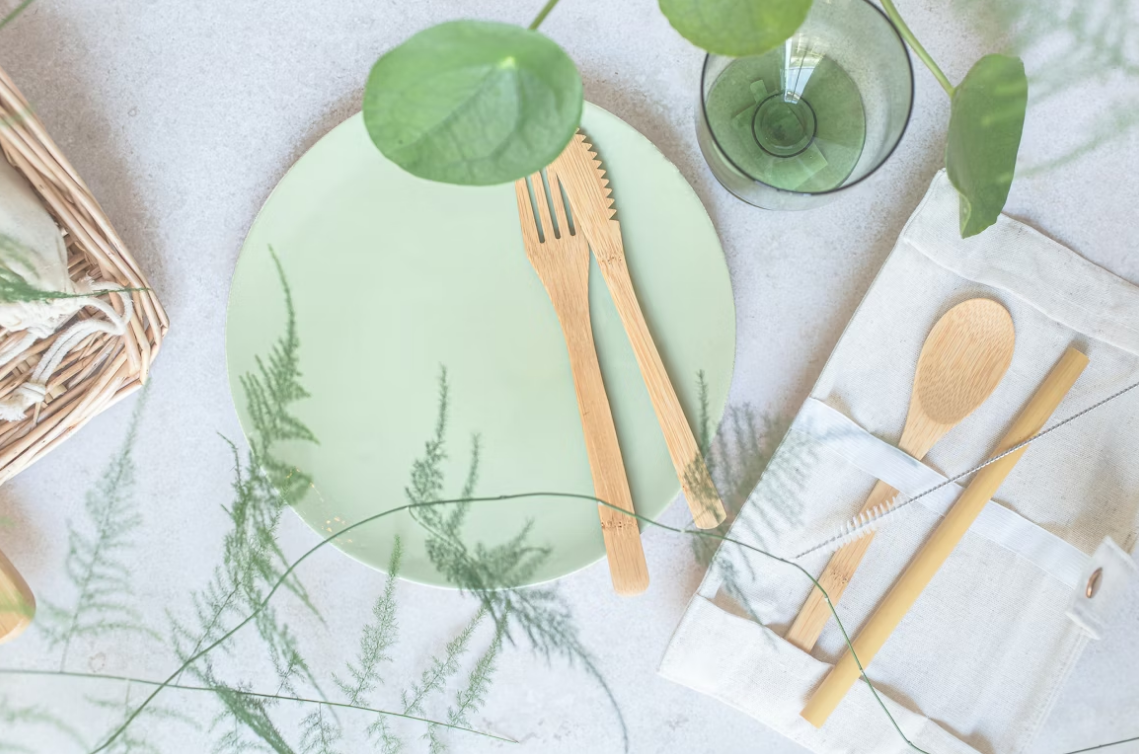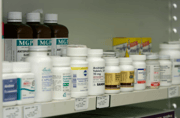
Many shoppers reach for “green” products, believing they offer a safer alternative, especially when they are trying to reduce plastic in their homes.
Labels filled with words like natural, plant-based, and biodegradable can create a sense of comfort before anyone even places a product into a cart.
Yet some of these items may behave differently once they come into contact with real meals in everyday conditions.
This uncertainty has led many people to look closer at what their eco-friendly dishes are actually made of and how they perform when exposed to heat or acidity.
What researchers uncovered in common bio-based tableware
A new study from the University of Chemistry and Technology in Prague found that many bio-based plates, bowls, cups, and dining sets may release concerning substances during use.
Researchers discovered that melamine—the most significant contaminant detected—was present in 32 percent of the largely bamboo products tested.
Their examination of 33 items from British, Chinese, and Czech markets also uncovered pesticide residues and several plant secondary metabolites.
Six bamboo products exceeded melamine limits set by European Union regulations, raising immediate concerns about safety.
Why the “natural” label can be misleading
"Our findings are a critical warning for consumers who choose bio-based tableware believing it is a safer, more sustainable option," said study author professor Jana Hajslova.
She emphasized that “the 'natural' label can be dangerously misleading” because many of these items are actually plastic dishes made from melamine-formaldehyde resin mixed with bamboo filler.
According to her, “our research shows this combination can accelerate the polymer's degradation and increase the migration of harmful substances like melamine, especially into hot or acidic foods and drinks.”
These products are frequently marketed for children, often decorated with colorful prints that further mask their true composition.
Ongoing availability despite EU restrictions
The study also highlighted that bamboo tableware is commonly “mislabeled” as “biodegradable,” “natural,” or “100% bamboo,” even though bamboo fibers are often not the primary material used. The use of bamboo as an additive in plastic tableware has been banned in the EU since 2021 due to the risks identified in this research.
Despite the restriction, the findings suggest that these products are still readily available to consumers, indicating gaps in enforcement. Researchers noted that melamine migrated into hot lemon tea and orange juice even at low concentrations, showing a direct pathway to ingestion.
Also read: Why cleaning this everyday utensil in the dishwasher is a mistake you’ll regret
What additional testing revealed
While only disinfectants appeared in bamboo-based dishes, a wider screening of 443 pesticides showed cereal-based dishes had the highest number of residues.
These unexpected results reinforce the need for more reliable labeling and stronger oversight across all types of bio-based tableware.
The study’s authors urge closer monitoring and market surveillance to protect consumers from hazardous or illegally marketed products.
Their findings suggest that safety claims on eco-friendly packaging should be viewed with caution until stricter controls are in place.
Read next:
- Kitchen killers? What these 10 kitchen items are doing to your health and safety!
- Are you using the right sugar substitute? Dietitians reveal the top picks for managing blood sugar
Many people want to make responsible choices, but this research shows how difficult that can be when products are mislabeled or poorly regulated. Asking questions about materials and manufacturing can help guide safer decisions, especially for items used with hot foods or by children. As the market shifts toward more sustainable options, consumers may need clearer standards to trust what they bring into their homes. What concerns you most about the safety of eco-friendly tableware, and have you changed any of your purchasing habits because of it?






